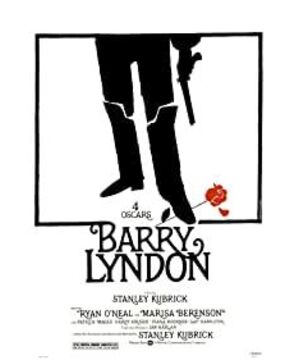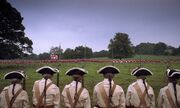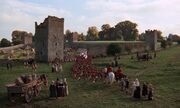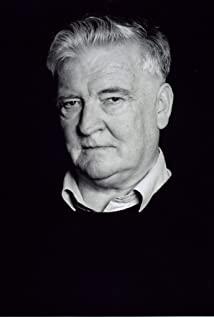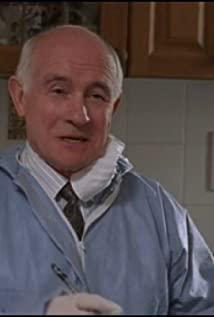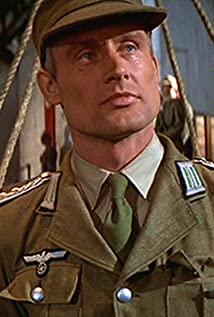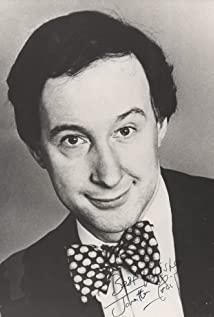The script of this film is adapted from William Thackeray's novel of the same name, which can be classified as a sequence of adaptations of Kubrick's literary works. At the same time, this film is also a period drama with good texture and a civilian epic showing the tragedy of fate.
At the Oscars that year, Kubrick won three nominations for Best Picture, Best Director and Best Adapted Screenplay for this film, and won Best Cinematography, Best Art, Best Costume, Best Music 4 An award is a well-deserved recognition.
Fuhua Dao is indeed a highlight of this film. Whether it is the Irish countryside in the early stage, the war scenes in the middle or the luxurious palace life in the later stage, they are all very successfully created. Especially in the second half of the creation of the aristocratic living environment, it is meticulous in the design of the interior and the presentation of the environment, and even in some storyboards, I think it has influenced last year's popular film "The Favourite" to a certain extent.
In addition to the exquisite and rigorous service of Taoism, which has made outstanding contributions to the film's sense of the times, the film's naturalistic photography and lighting also set a realistic tone. A large number of exterior scenes in the film were shot with natural light, while the interior scenes were lit with candles. The color temperature of the candles was different from that of the fill light panels. This lighting must have required special adjustments at that time, and it also gave some indoor scenes a unique dream. texture. For example, in the most talked about scene where Barry and Mrs. Lyndon flirted at the card table, the two did not say a word, and only depended on the time pressure controlled by editing, the internal relationship of the picture displayed by the composition, and the expressions and body parts of the actors. The action fully demonstrated the surging affection between the two, and this scene was also regarded as one of the most emotional flirting scenes in film history. It is precisely because of this that the director does not need to do more foreshadowing, so that in the next scene Barry directly holds Mrs. Lyndon's hand on the balcony without being abrupt.
The soundtrack is also excellent. First, the different passages have clear themes, which are consistent with the narrative tonality. In the first half of the country, there is a happy soundtrack with a large Irish style, in the middle of the war scene, the soundtrack becomes intense, and in the second half, it is tragic and sad. Secondly, the soundtrack and the picture are skillfully combined. Taking the duel between Barry and his stepson in the barn as an example, we can find that the actions of the actors are in tune with the movement and the drumbeat of the soundtrack. This is a reference to the expression of theatrical art. But at the same time, it can also bring out a different sense of the times.
The film tells the most dramatic days in Raymond Barry's life. The 180-minute film spans a long time and describes the process of Barry from a youth to middle age. After watching the film in the archive, I sighed that the film almost told the story of Barry's life, and the girl who went with me added: "This period also begins and ends with Barry's two duels." I was suddenly enlightened. In fact, the first scene at the beginning of the film is a duel. The narrator says that Barry's father was trained to be an educated lawyer, but he died in a duel as soon as the words fell. A touch of irony begins the film.
The narration of the whole film is advanced in such a tepid rhythm, and finally it gives people a feeling of mixed flavors and endless aftertastes. Through a character, we see the profile of an era. We usually call this kind of narration a character. epic. In this dimension, the target of this film is another excellent literary adaptation film "The Reader". The core of the character epic narrative is to bury the creator's attitude towards the character, and to show something more complex and grand in a relatively neutral way. At the same time, the protagonists are not necessarily passive, they often make choices or have their own principles, but the fate of Their stories to show some of the characteristics of the times they lived in...and that's the charm of tragedy.
Looking at Barry Lyndon's story, we can sum it up as a process by which the underclass wanted to work towards a class jump. The indescribable gloom in Barry's eyes never dissipated from the moment he stared at Nora until he lay on the bed after the amputation. This young man who was betrayed by love achieved a career based on his brave hope alone. From some subtleties, we can see the director's attitude towards this character. He is afraid but still reluctant to give up the duel; he decides to leave the army after witnessing the death of a friend; he also temporarily swells after marrying Mrs. Lyndon, but in the next scene, he immediately goes to apologize to Mrs. Lyndon ; and in the end, he looked at his stepson who threw up in horror and refused to shoot him.
We can find that for someone like Barry from the bottom, the only way to climb up is to constantly curry favor with the powerful, but in the end he lost everything because of his status as a commoner. He expended his fortune in hopes of a title, and he lost the opportunity because he was sometimes impulsive when his stepsons revealed his origins, and the aristocracy has since ostracized him. His son was his last hope to change this fate, but with his untimely death, he also fell into deep despair.
Through Barry's experience and many details in the film, it is not difficult for us to see that the director's spearhead is precisely those in power at the upper class. One of the most ironic is the restoration of the war scene at that time. The European war in the 18th century was also called "gentleman's war". Before the battle, everyone would line up, greet each other, and then shoot each other in rows. This method of warfare ended with the "total war" initiated by the First World War.
This film profoundly exposed the hypocrisy of those in power at that time. They called their people to die under the banner of gentlemen, but among them, accepting bribes, gambling, and moral collapse were commonplace. Today, although the social system has changed, class solidification still exists in another form. As long as social justice is not achieved to the greatest extent, we may all become the next Barry Lyndon.
View more about Barry Lyndon reviews


